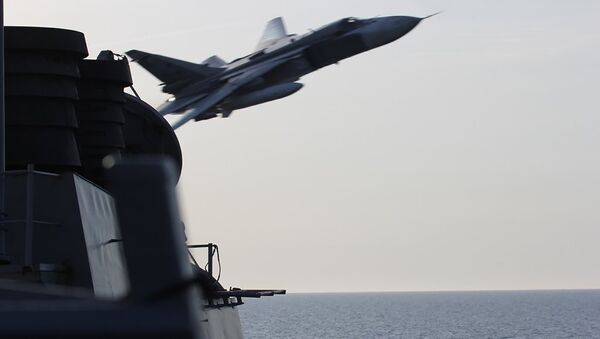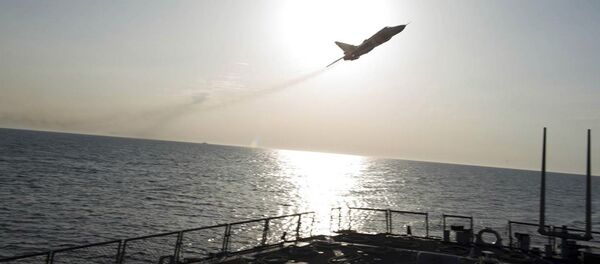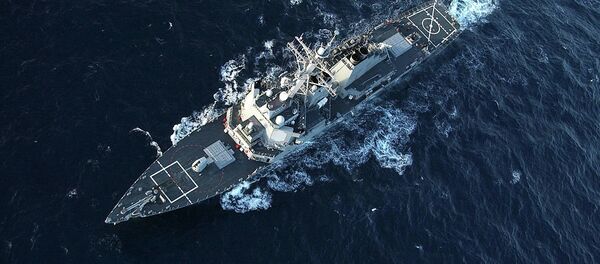Earlier this week, the Pentagon released video of Russian Su-24s conducting what it termed a "simulated attack" on the USS Donald Cook as it sailed through the Baltic. While the Russian Defense Ministry maintains that the flights were conducted “in strict compliance with international laws on airspace over neutral waters,” the US has described the maneuvers as "provocative" and "dangerous."
According to an op-ed in China’s Global Times, Washington may be attempting to cover its own embarrassment.
"The Russian pilots have demonstrated high professional skills to conduct such extremely dangerous maneuvers," the editorial reads. "The US military, which intends to provoke Russia in the Baltic Sea, was humiliated by its Russian counterpart instead.
"The US must feel furious."
The editorial goes on to view the Baltic incident as an example of US-Russia relations.
"To some extent, the fighter jets that flew over the US destroyer are an embodiment of [Russian President Vladimir] Putin, who for many years has repeatedly posed challenges to Washington adeptly," it reads.
"His response to the arrogant US pressure has helped reach an asymmetric strategic balance between Russia and the US."
It’s hard to view the USS Donald Cook’s presence in the Baltic as anything but a provocation against Russia. Beijing has faced similar provocation from the Pentagon in the South China Sea.
Washington objects to Beijing’s construction of artificial islands in the Spratly archipelago. As a result, the Pentagon has conducted a series of provocative patrols surrounding the territorial waters of the islands, and conducted surveillance flights through Chinese airspace.
China maintains that it has every right to build within its own territory and that the islands will be used primarily for humanitarian purposes.
"Though both China and Russia face strategic pressure from Washington, their specific ties with the US are different," the Global Times writes.
While China has "many flexible ways to tackle issues with the US," Moscow is, according to Beijing, a more inscrutable enigma to resolve.
"It is difficult to fully understand Russia and Putin," the editorial reads.
"Russia is a mystery to both East and West."




